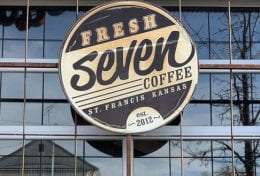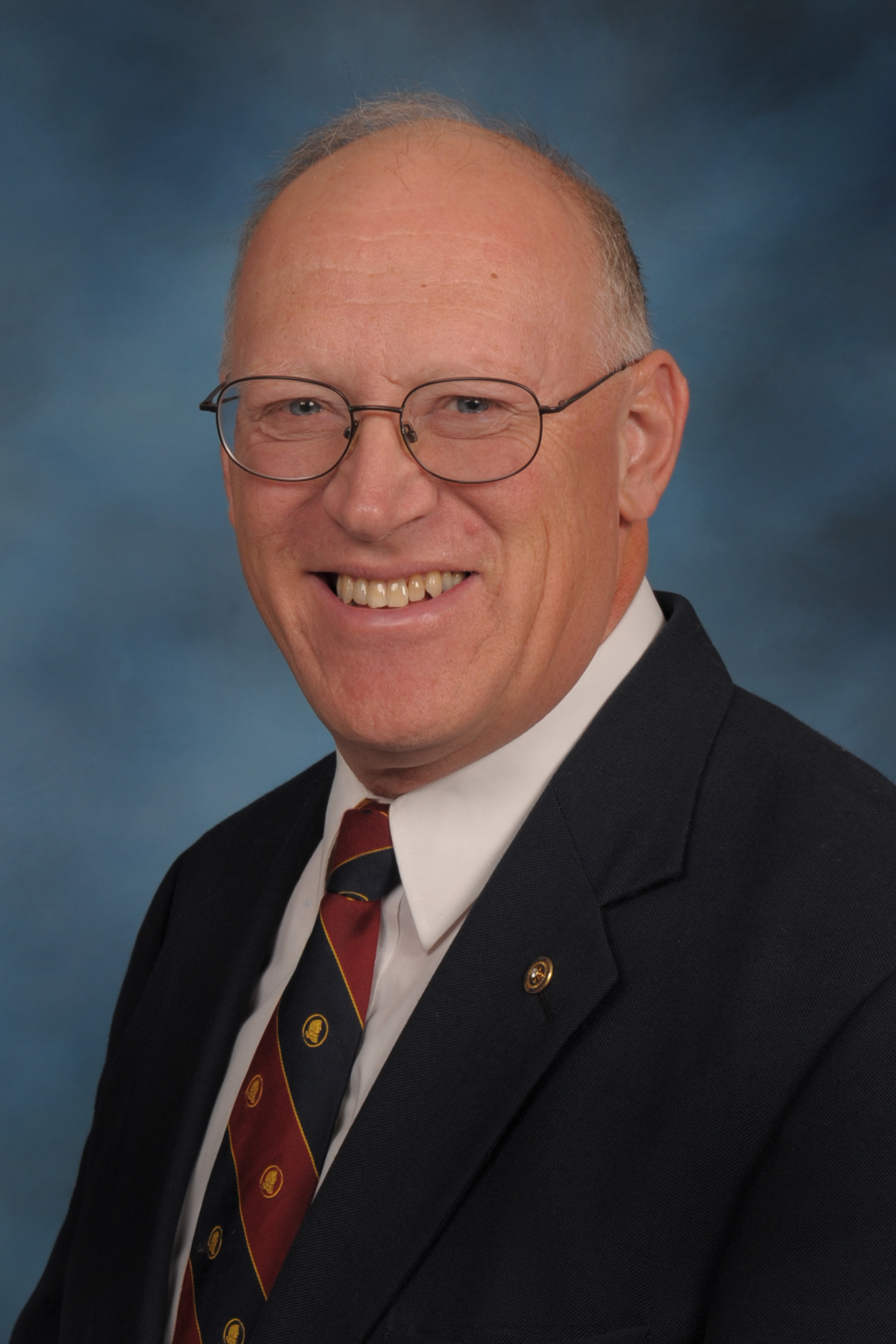PART TWO OF A THREE-PART SERIES
By Ron Wilson, director of the Huck Boyd National Institute for Rural Development at Kansas State University.
Davenport, Florida: A specialty package of Fresh Seven Coffee arrives to a customer. This coffee was carefully selected and roasted by a family halfway across the continent in rural Kansas.

Last week we met Heidi Plumb and Kale Dankenbring, who made a trip around the globe as newlyweds. They had met in Arizona. Kale worked in information technology and ran a motorcycle shop on the side.
Heidi worked at a roastery in Phoenix and learned the science of coffee production and roasting. “We just love coffee,” she said.
While traveling, Kale and Heidi were at a community coffee shop in India and got to talking about having a coffee shop of their own back in the United States. Kale suggested his hometown of St. Francis where there was an abandoned building for sale. Through Kale’s dad, they bought the building sight unseen, thinking this could serve as a place for their coffee roastery and motorcycle shop.
In 2012, they made their way back to St. Francis. “When Kale first stepped into that building, I think he almost cried,” Heidi said. “The building was an absolute mess, needing a new roof and much, much more.”
Over several months, they cleaned up the building and built an apartment in the back. “Maybe our trip overseas prepared us for living in an abandoned building, because we had stayed in some pretty tough places (overseas),” Heidi said.
After cleaning out the building and constructing their apartment and motorcycle shop, they fixed up a trailer where they could serve coffee. The trailer would later be moved into another abandoned building which they purchased and repaired.
Based on Heidi’s experience, Kale and Heidi committed to high-quality coffee that would be produced, harvested, roasted and served in a special way.
They wanted coffee which was harvested by hand while in season, as opposed to mass quantities and mixed quality of coffee that are harvested mechanically. Kale and Heidi worked with a buyer who sources such high-quality coffee around the world.
“Every country of origin has a season. We could geek out about coffee, it’s almost like wine,” Heidi said with a smile. Bean lots are assigned cupping scores, and Fresh Seven Coffee buys only beans with a high cupping score. Only subtropical climates and high elevations are suitable for producing coffee. Fresh Seven Coffee sources its beans from carefully selected sites in Ethiopia, Brazil, Guatemala, Peru and India.
Once the coffee beans reach Kale and Heidi, they hand-roast the coffee in small batches each day and commit to serve it within seven days of roasting. That was why they named their shop Fresh Seven Coffee.
“Our coffee is very fresh, and people can tell the difference,” Heidi said. “Our customers say, ‘Oh, this isn’t bitter.’ It makes a world of difference in the taste.”
Fresh Seven Coffee has branched out over time. The company sells its roasted coffee wholesale in addition to retail service. A recent batch went to Florida, for example.
In response to consumer demand, Fresh Seven Coffee has evolved into a hand-crafted espresso and cocktail bar, café and community center. Breakfast and lunch are offered Monday through Friday. “We get everything we can locally, like beef, bacon, eggs and some vegetables,” Heidi said.
During the pandemic, the store provided curbside service, carryout and free delivery. “Our customers were so supportive,” Heidi said. “That’s one of the cool things about being in a small community.”
St. Francis is a Northwestern Kansas community of 1,329 people. Now, that’s rural.
Customer reviews include comments such as: “The atmosphere of the establishment is a standalone masterpiece of the plains,” and “I may have had the best iced coffee of my life here.”
For more information, go to the Fresh Seven Coffee website.
It’s time to leave Florida, where a package of hand-selected and hand-roasted coffee was recently delivered. We commend Kale Dankenbring and Heidi Plumb for having such a strong commitment to quality in their coffee. It can make a world of difference.
And there’s more. What about Kale’s motorcycle shop? We’ll learn about that next week.
